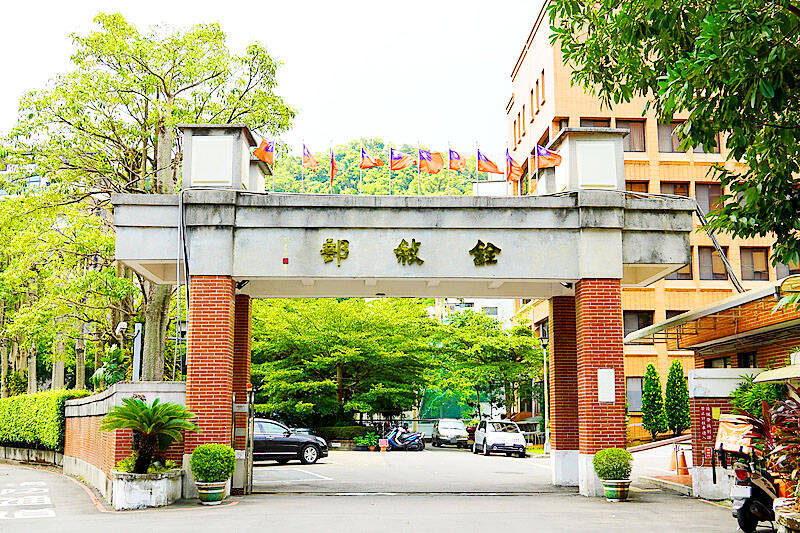Business
KMT’s Pension Fund Proposal Faces Severe Financial Risks

A recent report from the Ministry of Civil Service has raised significant concerns regarding the Chinese Nationalist Party’s (KMT) proposal to amend pension laws for civil servants, teachers, and military personnel. The KMT’s plan to halt pension cuts could lead to the depletion of the Public Service Pension Fund up to four to five years earlier than previously projected, jeopardizing financial stability and intergenerational fairness.
On August 14, Legislative Speaker Han Kuo-yu stated that the Act Governing Civil Servants’ Retirement, Discharge and Pensions should be revised, with changes potentially beginning following the upcoming recall vote and referendum. The ministry’s written report to the Legislative Yuan indicates that the pension fund is already grappling with a significant imbalance between its revenue and expenditures. An actuarial assessment conducted in 2013 projected that the fund could become insolvent by 2030.
To address these issues, the National Pension Reform Committee was established in 2016 to extend the fund’s sustainability, aiming for stability until approximately 2051. Key reforms implemented in 2018 included gradually lowering the maximum income replacement ratio and raising the pensionable age to 65. However, if the KMT’s proposal to stop annual reductions in the replacement rates is enacted, the fund’s depletion could accelerate, potentially exhausting it by 2042.
Three primary factors outlined in the report point to the risks associated with halting pension cuts. First, the annual reductions in the income replacement ratio from 2018 to 2023 saved the fund up to NT$277.4 billion (approximately USD 9.07 billion). Stopping this policy would not only eliminate these savings but would also require an additional NT$29.4 billion to fund individual pension accounts.
Second, the report warns that reducing funds available for investment would likely result in decreased investment income. Following the 2018 reforms, the fund’s income-to-expenditure ratio was at 145.3 percent in 2019. By 2023, this ratio had fallen to 98.6 percent, and further declines are expected if the reforms are reversed.
Lastly, halting the annual reduction in the replacement ratio would create a financial shortfall. If government subsidies are utilized to cover this deficit, it would place an additional burden on taxpayers, disproportionately impacting younger generations who would be responsible for supporting retirees. This outcome contradicts the reform’s goal of achieving intergenerational justice.
The ministry’s report notes that around 70 percent of retired civil servants received an average monthly income exceeding NT$50,000 last year. Those in higher salary grades earned between NT$60,000 and NT$80,000, which already surpasses the average salary in the private sector. The ministry argues that ceasing the annual reduction would further enhance these benefits.
Democratic Progressive Party caucus chief executive Rosalia Wu emphasized the need to protect the rights of both current and future civil servants, teachers, and military personnel. She criticized the KMT for prioritizing the interests of retired personnel at the expense of those still in service and future generations. Wu stated that the KMT’s pension proposal poses a threat to state finances, erodes intergenerational justice, and pushes the pension fund closer to bankruptcy, leaving little room for compromise from either the government or the legislature.
In response, KMT caucus deputy secretary-general Lo Chih-chiang asserted that the party’s position on amending the act is clear. He stated that the government should prioritize the welfare of civil servants rather than exacerbate social divisions or stigmatize retirees. Lo argued that reforms should promote stability and fairness for both the public and grassroots civil servants.
As discussions surrounding the pension fund continue, the implications of the KMT’s proposal remain a critical issue, with potential consequences that could affect both current and future generations.
-

 World5 months ago
World5 months agoSouth Korea’s Foreign Minister Cho Hyun to Visit China This Week
-

 Business5 months ago
Business5 months agoStarling Bank Plans Secondary Share Sale, Targeting $5.4 Billion Valuation
-

 Top Stories5 months ago
Top Stories5 months agoMunsang College Celebrates 100 Years with Grand Ceremony
-

 World5 months ago
World5 months agoPAS Aims to Expand Parliamentary Influence in Upcoming Election
-

 Business7 months ago
Business7 months agoKenvue Dismisses CEO Thibaut Mongon as Strategic Review Advances
-

 Lifestyle6 months ago
Lifestyle6 months agoHumanism Camp Engages 250 Youths in Summer Fest 2025
-

 Sports6 months ago
Sports6 months agoDe Minaur Triumphs at Washington Open After Thrilling Comeback
-

 Sports7 months ago
Sports7 months agoTupou and Daugunu Join First Nations Squad for Lions Clash
-

 Top Stories7 months ago
Top Stories7 months agoColombian Senator Miguel Uribe Shows Signs of Recovery After Attack
-

 World7 months ago
World7 months agoASEAN Gears Up for Historic Joint Meeting of Foreign and Economic Ministers
-

 Health6 months ago
Health6 months agoNew Study Challenges Assumptions About Aging and Inflammation
-

 Business7 months ago
Business7 months agoOil Prices Surge Following New EU Sanctions on Russia









